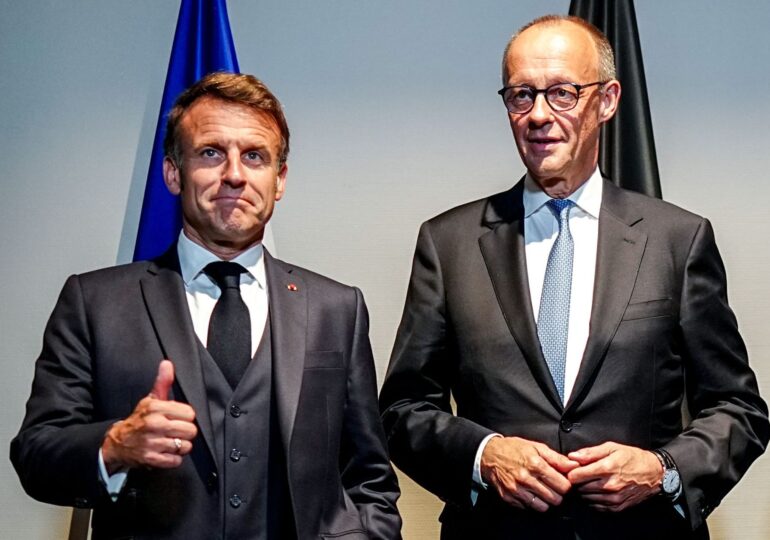German Chancellor Friedrich Merz and French President Emmanuel Macron met on Wednesday in Berlin, at Villa Borsig, for a working dinner. Discussions focused on the tariffs imposed by the US and support for Ukraine, with a packed agenda reflecting the importance of the bilateral relationship.
„Of course, the question of how we will react to the threat of tariffs starting on August 1 is a central point, as well as the security situation in Ukraine,” said Thorsten Frei, Merz’s chief of staff.
Mutual support and common themes
Merz and Macron sought to strengthen the common front on foreign policy, economy, and migration issues. Both support a pro-business agenda, aim for reducing regulations, and converge in support of nuclear energy.
"It is not a debate that takes place in the media spotlight," said an official from the Elysee, referring to France's possible involvement in European nuclear deterrence.
There was also a convergence regarding reducing asylum requests in Europe.
Long-standing divergences in strategic areas
However, major disagreements persist. Germany pushes for quick trade agreements with the US, while France seeks tougher conditions.
An essential project, the FCAS fighter jet, is affected by conflicts over program control, particularly between Germany and Airbus.
Additionally, France opposed the US-supported initiative to supply arms to Ukraine, preferring European production.
"There are two major issues that Germany and France need to resolve in order to make real progress," said German parliamentarian Roland Theis.
Foreign relations vs. electoral calculations
A real compromise involves internal concessions, say analysts.
"The Chancellor and the President are in a dilemma. They need to make sacrifices in domestic politics to make progress in foreign policy," explained Jacob Ross from the German Council on Foreign Relations.
In Germany, Merz is criticized by the far-right (AfD) for prioritizing foreign policy. In France, Rassemblement National leads the polls with 36%.
The window of opportunity is narrowing. Macron will no longer be able to run in 2027, and the French electoral campaign could paralyze any real collaboration.
"Simply put, time is pressing," warns Ross. "They only have one more year to collaborate in a reasonable manner. After that, the Germans may forget about the support of a functional French government."

